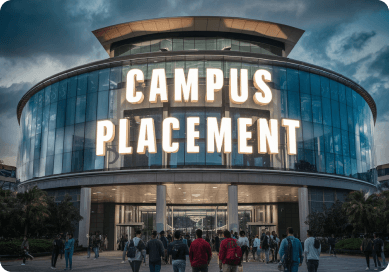Enter OTP



Chicago, United States of America

Chicago, United States of America

Cost Of Living

Undergarduate Fees

Undergraduate Fees International Students

Post Graduate Fees International Students

University offers a rigorous inter-disciplinary core curriculum which propels the students to become next-generation leaders in business, academics, and government. The university alumni and faculties have gone ahead to become Nobel laureates (89 Nobel Prize winners, out of which 5 are present faculties), Astronauts, Scientists, CEOs, and Government heads. Presently, it has more than 2750 faculties and academicians to teach 5,971 undergraduate and 9,394 graduate students.
A leading microbiologist and vaccinologist, Hilleman developed over 40 vaccines, including those for measles, mumps, hep... View More
A leading microbiologist and vaccinologist, Hilleman developed over 40 vaccines, including those for measles, mumps, hepatitis B, and more. His work is credited with saving nearly 8 million lives each year and shaping modern immunization programs. View Less
A sociologist, Roman Catholic priest, and best-selling novelist, Greeley served as a Senior Study Director at the Nation... View More
A sociologist, Roman Catholic priest, and best-selling novelist, Greeley served as a Senior Study Director at the National Opinion Research Center. His research focused on religion, society, and Catholic identity, influencing public discourse on faith and culture. View Less
A renowned public health official and MacArthur Fellow (1995), Hopkins played a key role in eradicating smallpox and lea... View More
A renowned public health official and MacArthur Fellow (1995), Hopkins played a key role in eradicating smallpox and leading efforts to eliminate Guinea worm disease. He also served as the acting director of the Centers for Disease Control (CDC) in 1985. View Less
A pioneering geneticist, Rowley discovered that chromosomal translocation on chromosome 9 causes the Philadelphia chromo... View More
A pioneering geneticist, Rowley discovered that chromosomal translocation on chromosome 9 causes the Philadelphia chromosome, which is linked to leukemia. Her findings laid the foundation for modern cancer genetics and targeted therapies. View Less
A professor of gerontological nursing at the University of Pennsylvania, Kagan specializes in aging and oncology care. S... View More
A professor of gerontological nursing at the University of Pennsylvania, Kagan specializes in aging and oncology care. She was awarded the MacArthur Fellowship in 2003 for her contributions to improving elderly patient care and nursing education. View Less
A respected medical educator, Rees was the dean of the University of Colorado School of Medicine from 1925 to 1945. His ... View More
A respected medical educator, Rees was the dean of the University of Colorado School of Medicine from 1925 to 1945. His leadership helped shape medical training and research during a critical period in American healthcare. View Less
A prominent bioethicist, Kass served as the chairman of the President’s Council on Bioethics and was a professor at th... View More
A prominent bioethicist, Kass served as the chairman of the President’s Council on Bioethics and was a professor at the University of Chicago. His work has significantly shaped debates on medical ethics, human dignity, and biotechnology. View Less
A pioneer in neurosurgery, Ransohoff founded the first neurosurgical intensive care unit and served as the chief of neur... View More
A pioneer in neurosurgery, Ransohoff founded the first neurosurgical intensive care unit and served as the chief of neurosurgery at NYU Medical Center. His innovations in brain surgery and trauma care revolutionized the field. View Less
A distinguished nephrologist and professor at Tufts University School of Medicine, Levey is known for advancing research... View More
A distinguished nephrologist and professor at Tufts University School of Medicine, Levey is known for advancing research in kidney disease. His work on glomerular filtration rate (GFR) estimation has transformed nephrology diagnostics. View Less
A leading physician and diabetologist, Peters is a professor at the Keck School of Medicine at USC. She has made groundb... View More
A leading physician and diabetologist, Peters is a professor at the Keck School of Medicine at USC. She has made groundbreaking contributions to diabetes treatment, focusing on patient-centered care and new technologies for managing diabetes. View Less
The University of Chicago's campus infrastructure facilities ensure the smooth operation and maintenance of campus life. These services include building maintenance, such as elevator upkeep, temperature control, and general maintenance. The university's engineering and utilities team manages essential services like steam, electricity, and water. Landscape services are also offered, including grounds care, snow removal, and walkway renovation that adds native plantings and improves drainage. For construction and renovation, UChicago provides planning frameworks, feasibility studies, and relocation management services. Housing services are available for graduate students, faculty, and staff, including leasing and loan services.
The University of Chicago offers a vibrant student life with a wide range of activities, including sports, arts, community service, and student organizations. For sports, students have access to athletic facilities, can join intramural sports clubs, and participate in varsity sports teams. The arts scene is rich, with opportunities to join music groups, participate in theater productions, and engage in improv comedy. Students are encouraged to explore artistic and cultural experiences across campus. UChicago also promotes community service, offering formal leadership roles and opportunities to serve the surrounding Chicago community. Various programming is available, covering topics like diversity, wellness, and fitness. Additionally, students can join recognized student organizations, including debate teams, to further enhance their campus involvement and leadership skills.


The University of Chicago (UChicago) provides comprehensive career support through advising, resources, and programs designed to help students explore career paths, find opportunities, and prepare for their futures. Incoming students are assigned a Career Advancement adviser to create personalized plans. The GRAD team supports graduate students and postdocs in exploring opportunities in academia, industry, nonprofits, and government. UChicago offers career resources such as the CliftonStrengths assessment, career guides, workshops on networking, and paid internships in fields like consulting, finance, and marketing. Additionally, career treks by Chicago Booth engage students with companies globally.
The below information is required while
completing the university application :
University of Chicago Undergraduate Admission Requirements
GPA: No minimum GPA, but typically between 3.8–4.0 for admitted students
Test Scores: Test-optional, but submitting scores is encouraged
Average ACT score: 34–35
SAT score (25th-75th percentile): 1510–1570
Other Requirements:
Essay questions
English language proficiency scores
Secondary school reports or transcripts
Letters of recommendation
High school class rank
Personal statement or supplement essays
Application fee
UChicago is highly selective, with an acceptance rate of around 5%.
Know moreThe University of Chicago provides various facilities and services to support campus recruitment. The Booth School of Business offers a free job posting service, allowing companies to recruit MBA students and alumni while also accessing a resume database of candidates. UChicago Handshake connects students with on-campus employment and local nonprofit opportunities. Bain & Company actively recruits students for roles in consulting, technology, analytics, and business operations. Additionally, the Executive MBA Program allows students to complete their degree in Chicago, London, or Hong Kong, while the Executive Education program provides nearly 50 open-enrollment courses worldwide, along with customizable training programs for organizations.



The University of Chicago has made numerous notable contributions across various fields throughout its history. Some of the university's landmark achievements include the establishment of the first sociology department in the U.S. in 1892, the creation of the first modern linguistics department in 1926, and the founding of the Documentary Film Group in 1932. In 1942, UChicago became the site of the first controlled self-sustaining nuclear chain reaction. The university also developed carbon-14 dating in 1946 and contributed to anthropology with Robert Redfield's Comparative Civilizations Project in 1951. In the arts, the Compass Players were founded in 1955, becoming the birthplace of improvisational comedy, which later inspired The Second City in 1959—founded by UChicago graduates Paul Sills and Bernard Sahlins.


University of Chicago graduates Paul Sills and Bernard Sahlins founded The Second City, a legendary improvisational theater company in Chicago. This group inspired future comedy institutions like Saturday Night Live, launching the careers of countless comedians, including Bill Murray, Tina Fey, and Steve Carell.
The university founded The Compass Players, an undergraduate comedy troupe that became the birthplace of modern improvisational comedy. This group developed new performance techniques that would later influence the comedy industry worldwide.
Anthropologist Robert Redfield launched the Comparative Civilizations Project, a major interdisciplinary research initiative that examined the cultural, historical, and social structures of different civilizations. This project influenced the study of global history and cross-cultural interactions.
The university played a key role in developing carbon-14 dating, a revolutionary scientific method for determining the age of ancient artifacts, fossils, and historical objects. This advancement transformed archaeology, anthropology, and earth sciences.
Physicist Enrico Fermi and his team achieved the first controlled, self-sustaining nuclear chain reaction on the University of Chicago campus. This groundbreaking experiment, known as Chicago Pile-1, laid the foundation for nuclear power and the development of the atomic bomb during World War II.
The university established the Documentary Film Group, the oldest college film society in the U.S. This organization promoted film as an artistic and educational medium, providing students with opportunities to produce, screen, and analyze films.
The University of Chicago created the first modern linguistics department, transforming the study of language through scientific analysis. This department played a crucial role in advancing fields like structural linguistics and cognitive linguistics, influencing the way language is studied worldwide.
The university awarded the first-ever PhD in American literature, marking a major milestone in the formal academic study of American writing, culture, and literary history. This helped establish American literature as a respected field of study in higher education.
The University of Chicago founded the first sociology department in the United States, pioneering the academic study of social structures, urban development, and human behavior. The department became a leader in shaping modern sociology, influencing research methods and theories still used today.
The University of Chicago has contributed significantly to advancements in medicine, science, and technology through groundbreaking inventions. In medicine, Oswald Robertson pioneered the concept of blood banks in 1917, Dr. Franklin McLean measured blood glucose levels for the first time in 1914, and Dr. Donald Steiner discovered how the pancreas produces insulin in 1965. In science, UChicago researchers developed radiocarbon dating, performed the oil-drop experiment to measure the charge of an electron, and discovered elements such as plutonium, curium, and einsteinium. The university has also played a key role in technological advancements, including early contributions to quantum mechanics and achieving the first self-sustained nuclear reaction during World War II.
Dr. Donald Steiner discovered proinsulin, the precursor to insulin, which revealed how the pancreas produces insulin naturally. This breakthrough led to the development of synthetic insulin, drastically improving the treatment of diabetes. Before this discovery, insulin production relied on extracting the hormone from animal sources, which was less effective and posed higher risks of allergic reactions.
Willard Libby developed radiocarbon dating, a technique that allows scientists to determine the age of ancient objects by measuring the decay of carbon-14. This method revolutionized fields like archaeology, geology, and paleontology, enabling researchers to accurately date artifacts, fossils, and historical sites up to 50,000 years old. It remains one of the most widely used dating techniques today.
During the Manhattan Project, Glenn T. Seaborg and his team successfully isolated and measured plutonium, a new element that became critical for nuclear energy and atomic weaponry. Plutonium’s discovery led to significant advancements in nuclear reactors, space exploration, and medical treatments.
During World War II, physicist Enrico Fermi led a team that achieved the first controlled nuclear chain reaction under the University of Chicago’s football stadium. This historic breakthrough was the foundation for nuclear energy, medical radiation therapies, and atomic research, ultimately leading to both nuclear power plants and the atomic bomb.
During World War I, UChicago researcher Oswald Robertson pioneered the concept of blood banks, which allowed blood to be collected, stored, and transported for later use in transfusions. Before this, blood transfusions had to be performed directly between donors and recipients, making emergency care extremely difficult. Robertson's innovation laid the foundation for modern blood donation systems, saving countless lives in hospitals and battlefields worldwide.
Dr. Franklin McLean was the first to accurately measure blood glucose levels, a breakthrough that became essential for diagnosing and managing diabetes. His research paved the way for the development of glucose monitoring devices and insulin therapy, improving the quality of life for millions of diabetics worldwide.
Professor Robert Millikan conducted the oil-drop experiment, which led to the first precise measurement of an electron’s charge. By observing tiny charged oil droplets in an electric field, Millikan determined the fundamental unit of electric charge, confirming that electrons carry a consistent charge. This discovery was crucial to the development of atomic physics and modern electronics.














Embark on your educational journey with confidence! Our team of admission experts is here to guide you through the process. Book a free session now to receive personalized advice, assistance with applications, and insights into your dream school. Whether you're applying to college, graduate school, or specialized programs, we're here to help you succeed.
